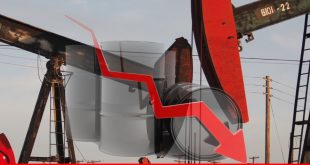Pakistan since its emergence, still has no strategy on strategic fuel storages. Strategic reserves are enduringly held for non commercial causes, which are utilized to offer safeguard against external blockades in times of war.
The fuel reserves also provide safeguard against the internal impediments like flood and disasters. And in case of oil industry disruptions due to refineries’ outages and pipeline break downs, the strategic reserves are not used in Pakistan. The strategic fuel reserves are separate from the commercial stocks but these can be used through oil industry in times of need.
Internationally the strategic reserves vary as per government strategy. EU member states are required to hold stocks at higher of 90-day of average net daily imports or 61-day of average daily inland consumption in order to mitigate a supply crisis. Germany maintains 90-day by a Federal Body with Refineries, OMCs (oil marketing companies), government as members and so much so, Netherlands has 90-days stock that is maintained through an independent non profit body. UK has 67.5-day of net consumption where the OMCs manage strategic storage in every case.
The responsibility and ownership for sustaining strategic stocks resides with the governments, with the industry cooperating in the implementation of the strategy.
In all the global models, the cost of strategic storage is recovered as a charge or levy passed on to the end-consumer on all inland sales. As far as Pakistan is concerned, based on a research conducted some eras back, 45-day strategic stock requirement for the country had been proposed through the concerned departments. It was also proposed that these storages should be built across Pakistan.
Being the front state against terrorism, the country poorly needs to upgrade oil reserves capacity up to 45-days at least.
Presently under the rules, all OMCs need to maintain the fuel storages up to 21-day, but they are managing them for up to 11-13 day utmost, which is very alarming development given the situation.
The Oil and Gas Regulatory Authority (OGRA) has also asked the government to thrash out plan for raising the fuel storage capacity of Pakistan.
On the other hand, Pakistan Refinery Limited (PRL) being the chief manufacturer and supplier of petroleum products to the local market and Pakistan defense forces continues to serve the energy needs of Pakistan with professional excellence and high degree of commitment. The refinery is a hydro-skimming refinery designed to process many imported and domestic crude oil to meet the strategic and local fuel requirements of Pakistan.
PRL has a capacity of processing 47,000 barrels per day of crude oil into a variety of distilled petroleum products like furnace oil, high speed diesel, kerosene oil, Jet fuel and Motor gasoline etc. The refinery is operating at two locations.
Initially, the design capacity of the refinery was to process 1.0 million tons of crude oil yearly, which was subsequently enlarged to 2.1 million tons per annum. PRL continued profitable trend during the third quarter and recorded a profit after taxation of Rs860.46 million during the nine months period closed March 31, 2016 as against to loss after taxation of Rs2,484 million during the corresponding period previous year. This was because of to positive impact of Isomerization Plant, which was fully operational during the year and favorable refining margins.
The management of PRL continues to face issues of volatility in value of Pak Rupee, which resulted in important exchange losses. In addition, PRL remains subject to minimum tax on turnover at 0.5 percent, which is very harsh since the refineries operate on high turnover but low margin basis and therefore, the resulting minimum tax on turnover far exceeds the normal corporate tax rate of 32 percent.
Pakistan Refinery Limited has made numerous representations to Federal Board of Revenue (FBR) and the Government of Pakistan requesting that the refineries should be given similar tax relief of reduction in rate of minimum tax on turnover as is available to certain segments of the industry.
PRL is also facing adverse effects of pricing mechanism of HSD (High Speed Diesel) whereby the refineries are required to pay the difference between actual import price and Import Parity Formula Price of HSD. This alone has resulted in loss of revenue of Rs1,320 million during the period. PRL has started feasibility study on the refinery growth and upgradation including installation of DHDS (Diesel Hydrodesulphurisation Unit).
The Government of Pakistan has already enlarged the deadline up to June 2017 for setting up DHDS considering longer project completion time and huge investment required for this purpose.
PRL continues to maintain highest standards of health, safety, environment & quality and fruitfully achieved 6.9 million man-hours without Lost Time Injury as of March 31, 2016.
| PAK REFINERY IN KSE (Rs) | ||||||
|---|---|---|---|---|---|---|
| Date | LDCP | Open rate | High rate | Low rate | Closing rate | Turnover |
| 2-May-16 | 45.9 | 45.95 | 45.95 | 44.95 | 45.06 | 701,500 |
| 3-May-16 | 45.06 | 45 | 45.63 | 44.82 | 45.2 | 642,500 |
| 4-May-16 | 45.2 | 45.3 | 45.56 | 44.93 | 45.08 | 777,500 |
| 5-May-16 | 45.08 | 45.4 | 45.7 | 45 | 45.22 | 817,000 |
| 6-May-16 | 45.22 | 45.3 | 45.44 | 44.25 | 44.81 | 548,000 |
| 9-May-16 | 44.81 | 45.05 | 46.1 | 44.95 | 45.53 | 1,805,000 |
| 10-May-16 | 45.53 | 45.5 | 46 | 45.1 | 45.28 | 1,132,500 |
| 11-May-16 | 45.28 | 45.64 | 45.65 | 44.9 | 45.1 | 883,500 |
| 12-May-16 | 45.1 | 45.39 | 45.6 | 44.96 | 45.06 | 1,018,000 |
| 13-May-16 | 45.06 | 45.1 | 45.37 | 44.82 | 44.92 | 573,000 |
| Total Turnover | 8,898,500 | |||||
 PAGE Blog Business Weekly Magazine
PAGE Blog Business Weekly Magazine

